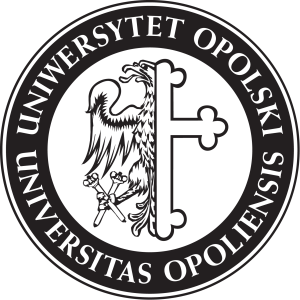Module 5 Part 7
Task 1 (15 min)
GROUP DISCUSSION
Discuss in a group and create a mind map. Answer the following questions:
How does being part of a sexual minority group influence a person’s sense of belonging within various social spaces, such as family, school, or the workplace?
What are some positive and negative experiences that individuals in sexual minority groups might have in finding and building community?
In what ways do culture and traditions influence attitudes toward sexual minorities and affect their identity and sense of self-acceptance?
Example:

Task 2 (45 min)
Description of the situation
As a result of non-inclusive policies, losses to the Latvian economy in 2022 are estimated at up to 811 million euros, equivalent to 1–2% of Latvia's gross domestic product (GDP), according to data from the study The True Price of Intolerance conducted by the audit company KPMG Baltics. Inclusion and economic development are closely related factors, as human capital comprises each individual's abilities, skills, knowledge, and health. Although public attitudes toward homosexuality are improving, deficiencies in the legal environment continue to “significantly hinder” the development of an inclusive society. (Source: KPMG, 2022, https://www.sif.gov.lv/lv/media/4008/download?attachment)
Research the economic impact of non-inclusive policies (related to sexual minorities or other marginalized groups) in your country or region.
Compare these findings with Latvia's situation described in The True Price of Intolerance study.
In small groups, identify gaps in the legal environment of your respective countries that may hinder inclusivity. Use Latvia's challenges as a reference point and propose policy changes to promote inclusivity and address economic impact.
Prepare a presentation with your recommendations, supporting each suggestion with evidence or examples from research.
Work into two teams for a debate: Pro-Inclusive Policy and Skeptics of the Economic Benefits of Inclusivity. Each team should prepare arguments for why inclusive policies benefit or potentially harm economic development, using examples from Latvia and other countries.
Conduct the debate, with each team presenting their arguments and responding to counterarguments.
Task 3 (35 min)
Description of the situation
The Partnership Regulation in Latvia, on July 1, 2024, introduced a new legal framework for partnerships. Under this regulation, all couples, including same-sex couples, can register their relationships. The first couple to take advantage of this opportunity did so immediately after midnight, as soon as the partnership option became available in Latvia, according to the movement Dzīvesbiedri. Jānis and Maksims met at the beginning of 2019 and began their life together at the end of that year, according to Dzīvesbiedri. The couple arrived at the notary's office shortly before midnight in the Quiet Center in an old-fashioned car decorated with summer meadow flowers. Both were dressed for the occasion, admitting they felt nervous. Together for five years, they had eagerly awaited this moment. "We have been waiting for a long time since the day the law was adopted. This is a very long-awaited event. We waited for this day with very happy feelings! There is a bit of stress, of course, but it is a joy that we will finally be seen in front of the country," said Jānis. Signing the certificate of partnership took only a couple of minutes, and at five minutes past midnight, Jānis and Maksims left the notary's office as the first couple to register their partnership officially. Sworn notary Aigars Kaupe noted that this was a historic day. "It is a thrill to perform a new activity, to take on a new function. And beyond the historical importance, it is fundamentally important for Latvian society: the right to recognise that people are different, relationships are different, and all are valuable and must be protected."
(LSM.lv News editorial, Aleksandra Straume, 2024, https://www.lsm.lv/raksts/zinas/latvija/01.07.2024-stajas-speka-partneribas-regulejums-pirmaisviendzimuma-paris-registre-attiecibas. a559690/)
Answer the following questions:
What does the notary mean when he says this moment is "fundamentally important for Latvian society"? How could this moment influence social attitudes in Latvia?
Why is it essential for LGBTQ+ couples to be represented and recognized legally? How does this affect their visibility in society?
In your opinion, what other steps, besides legal recognition, could Latvia (or any country) take to make LGBTQ+ individuals feel more included and protected? How might society continue to evolve regarding inclusivity for LGBTQ+ individuals over the next decade?
Imagine you are either Jānis or Maksims, writing a letter to young LGBTQ+ individuals in Latvia ten years from now. In your letter, describe what this moment meant for you, how it felt to be recognised legally, and your hopes for the future. Emphasize the importance of acceptance, equality, and progress in society.
Legal status of same-sex partnerships in your country and compare it to Latvia’s recent changes. Create a table that shows the differences in legal recognition, rights, and protections provided to same-sex couples in both countries.
Reflect on how differences in partnership laws can influence societal acceptance and personal relationships.
Task 4 (25 min)
Description of the situation
On June 15, during Pride week in Riga, Latvia, 2024, around 7,000 people joined the “Until We Are All Equal” march, organised by the LGBT association Mosaika. The event, which was peaceful overall, attracted not only supporters but also protesters. One protester, Andrejs, held a sign reading “Homosexuality is a sin” and spoke against Pride, expressing his view that it promotes values contradictory to his religious beliefs. Gint and Daniels, also opposing the march, explained that their presence aimed to share their belief that homosexuality is sinful, hoping their messages would make a difference. The event drew international attention, with foreign guests and diplomats attending in support of LGBTQ+ rights. Clemons, a French resident in Latvia, promoted tolerance, noting that although attitudes in Latvia are conservative, similar views are common in parts of France. Norwegian official, Anne Lindboe shared that Oslo’s City Hall proudly flies the Pride flag yearly, reflecting its commitment to inclusivity. In contrast, the Riga City Council chose not to display the Pride flag. However, Education and Science Minister Anda Čakša voiced her support for LGBTQ+ inclusion, calling it an essential human rights issue. The British Embassy participated prominently, with Ambassador Paul Bramel stating that LGBTQ+ rights are human rights and encouraging all to join the celebration.
(LSM.lv News editorial staff, Sintija Ambote, Uldis Birziņš, 2024, https://www.lsm.lv/raksts/zinas/latvija/15.06.2024-foto-un-video-praida-gajiens-lidz-mes-visibusim-vienlidzigi-riga.a558170/)
Compare the views of Pride supporters and protesters. What arguments are presented on each side, and how do they reflect different cultural and personal beliefs?
Research how Pride is celebrated in another country. How do the support and opposition to Pride in that country compare to what is described in Riga?
Discuss why foreign embassies, like the British Embassy, might choose to participate in local Pride events. What impact could this have on regional and international perceptions of LGBTQ+ rights?
Should government buildings like City Halls display the Pride flag during Pride events? Prepare arguments for and against, considering inclusivity, public representation, and neutrality.
Task 5
Reflection Questions
How does viewing inclusivity through an economic lens change the conversation or priority level of inclusivity initiatives?
How could this milestone for one couple symbolise progress for the LGBTQ+ community in Latvia? In what ways might this inspire or give hope to others?
How does the peaceful coexistence of supporters and protesters at the Pride march reflect
the complexities of freedom of expression in society?


